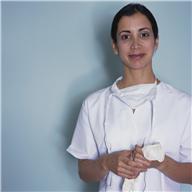Did you know many women over 40 believe that they should only go to the doctor if they have something bothering them? The fact is that an annual physical exam is an important part of maintaining the health of women over 40. Your physician can work with you on developing a health plan involving routine care and screenings. Your family history, age, medications, race and lifestyle can all contribute to increase the risks for certain conditions. Even if you notice no symptoms these tests can help identify underlying issues you may not be aware of.
Colon Cancer
Often we associate colon cancer risk with men, but women can and do get colon cancer too. Family history and ethnic background factor in to your risk of the disease. As with all cancers, early detection often means less invasive treatments and a better prognosis.
You should start getting colon cancer screenings at age 50. Your physician may schedule:
• A stool test performed every year
• Flexible scope test, known as sigmoidoscopy, every 5 years
• Colonoscopy every decade
• People with higher risk factors may need more frequent colonoscopies
Breast Health in Women Over 40
Every woman should perform monthly breast self-exams. This enables you to notice small changes early on and alert your physician to them so they can be looked at more closely. Women over 40 need to schedule a mammogram with their doctor every 1-2 years as well as a clinical breast exam annually. Certain risk factors, such as family history, will play a part in how frequently your physician wants to test you.
Pelvic Exams
Pelvic exams and pap smears are a vital part of women’s health. The various parts of these exams help screen for cervical cancer as well as other potential health issues, such as STDs.
These screenings may include:
• Screenings for STDs, such as HPV, as well as a discussion of prevention
• Pelvic exam done every 1-3 years based on history and risk
• Pap smear done every 2-3 years unless abnormal results are found, in which case more frequent exams are needed
• Women over 65 with previous normal screenings as well as those with full hysterectomies can discuss with their physician if they still need a pap smear
Osteoporosis
Both men and women can suffer osteoporosis but women are far more likely. Post-menopausal women’s bodies produce less estrogen which is one of the greatest risk factors for osteoporosis.
Other risk factors include:
• Frame size
• Age
• Race
• Family history
• Thyroid problems
• Dietary factors
• Medication
• Exercise
• Tobacco and alcohol use
Your body often shows no sign of osteoporosis until a bone is broken. The spine, hip and wrist are at the greatest risk of damage from osteoporosis. Your doctor will want to perform a bone density test beginning at age 65, or earlier depending on your risk factors.
Taking Care of You
Women are known for being the caretakers among family and friends, often putting themselves last. But as you age it becomes increasingly important to take care of your body. Your physician can review your family and personal health history as well as your specific lifestyle to determine what testing is suited for you and when. By spending a little time taking care of themselves, women over 40 can enjoy a healthy and active life.


Speak Your Mind